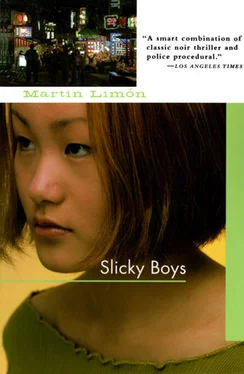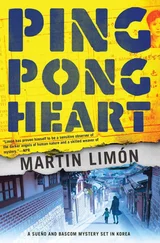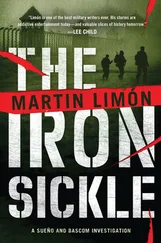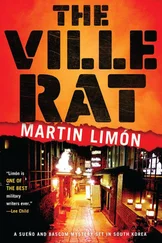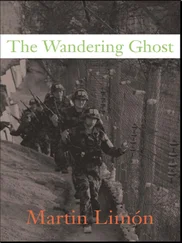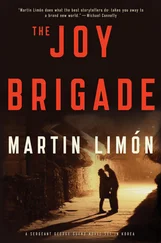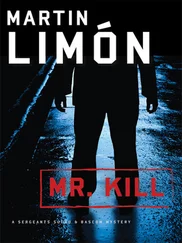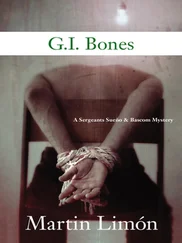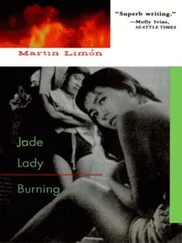Martin Limon - Slicky Boys
Здесь есть возможность читать онлайн «Martin Limon - Slicky Boys» весь текст электронной книги совершенно бесплатно (целиком полную версию без сокращений). В некоторых случаях можно слушать аудио, скачать через торрент в формате fb2 и присутствует краткое содержание. Жанр: Полицейский детектив, на английском языке. Описание произведения, (предисловие) а так же отзывы посетителей доступны на портале библиотеки ЛибКат.
- Название:Slicky Boys
- Автор:
- Жанр:
- Год:неизвестен
- ISBN:нет данных
- Рейтинг книги:5 / 5. Голосов: 1
-
Избранное:Добавить в избранное
- Отзывы:
-
Ваша оценка:
- 100
- 1
- 2
- 3
- 4
- 5
Slicky Boys: краткое содержание, описание и аннотация
Предлагаем к чтению аннотацию, описание, краткое содержание или предисловие (зависит от того, что написал сам автор книги «Slicky Boys»). Если вы не нашли необходимую информацию о книге — напишите в комментариях, мы постараемся отыскать её.
Slicky Boys — читать онлайн бесплатно полную книгу (весь текст) целиком
Ниже представлен текст книги, разбитый по страницам. Система сохранения места последней прочитанной страницы, позволяет с удобством читать онлайн бесплатно книгу «Slicky Boys», без необходимости каждый раз заново искать на чём Вы остановились. Поставьте закладку, и сможете в любой момент перейти на страницу, на которой закончили чтение.
Интервал:
Закладка:
We drove through the gate and out into the city.
All vehicles were off the street now because it was past curfew, the midnight-to-four lockup the government slapped on a battered populace over twenty years ago at the end of the Korean War. The theory is that it helps the authorities spot North Korean spies who might be prowling through the cover of night. The truth is that it reminds everybody who’s boss. The government and the army. Not necessarily in that order.
We rolled through the shadows.
Seoul was dark and eerily quiet and looked like a town that had been frozen to death.
The jeep had four-wheel drive and snow tires, but still Ernie slid on the packed ice every now and then. He turned out of the skids expertly and I felt perfectly safe with him at the wheel. Safer than I would’ve felt if I were driving. He’s from Detroit. He’s used to this kind of thing. But I hadn’t learned how to drive until after I joined the army and, in East L.A., where I come from, it doesn’t snow very often. Only during Ice Ages.
I thought of the long summer days when I was a kid, running with packs of half-wild Mexican children through alleys littered with gutted mattresses and stray dogs and broken wine bottles. There were no swimming pools in the barrio. We poured buckets of chlorine-laced water over our heads in a futile effort to keep cool. And during the hottest days of the season, when I was fortunate enough to land a job, I breathed in the tang of warm oranges and overripe limes fermenting in a metal pail as I knocked on door after door in Anglo neighborhoods, hustling for a sale.
Every kilometer or so we were stopped by a ROK Army roadblock. The soldiers looked grim and tired. Their breath billowed from fur-lined hoods and they kept their M16 rifles pointed at the sky, which was okay with me. After we showed our identification and the twenty-four-hour emergency dispatch, they waved us through without comment.
Neither Ernie nor I talked. We were both thinking the same thing. We were in deep kimchi, the fiery-hot fermented cabbage and turnips that Koreans love. Kimchi up to our nostrils.
We’d taken money to deliver a note to Cecil Whit-comb, and now he was dead. Military justice doesn’t know much about mercy. If anybody found out, we’d be kicked out of the army with a bad discharge or end up doing time in the Federal Penitentiary in Fort Leavenworth, Kansas, or both.
This wasn’t going to be a routine case.
I was also beginning to feel a little guilty about maybe getting Whitcomb killed. Maybe a lot guilty. But I decided to put that away for now. I needed to think. And concentrate on the job I had to do when we arrived at the murder site.
Despite all the boozing we’d done in Itaewon, Ernie and I were both sober. But it wasn’t from the cold air. It was from the tarantula legs of fear slowly creeping up our spines.
The upturned shingle roof of the Great South Gate was supported by stones weighing more than half a ton each. The gate had been built during the Yi Dynasty about four centuries ago, and was once part of a wall that surrounded the city. Now, in the deepness of the Seoul night, it sat somber and unmoving, as if it were watching us.
We circled the great edifice twice, creating lonely tracks in the snow, until I spotted a glimmer of light in one of the roadways running up a hill.
“Up there,” I said. “Vehicle moving.”
“Right.”
Ernie swerved up the incline and rushed through a narrow road until the walls widened. We turned and almost ran into a gaggle of official-looking vehicles clustered around the mouth of another, even more narrow alley. Ernie found a spot up the road, parked the jeep, and padlocked the steering wheel.
As we walked back toward the lights, a grim-faced soldier stepped out of the night. He leveled an M16 rifle at us, blowing chilled breath through brown lips.
“Chong ji!” he said. Halt. “Nugmho?” Who is it?
I put my hands up slowly. “We’re from Criminal Investigation,” I said, “Eighth Army. Here about the body.”
When he didn’t respond I said the same thing-or almost the same thing-in Korean. The creased brow above the chiseled planes of his face crinkled a little tighter.
Ernie grew impatient. He pulled out his identification and thrust it forward. The soldier flashed a penlight on it, then studied our faces.
He waved his black gloved hand.
“Chulip kumji yogi ei.” No admittance here.
Ernie took a step toward the guard, staring at him, talking to me.
“Who does this asshole think he is, telling us we can’t go in there? We’re on an investigation.”
I reached my hand out toward Ernie’s elbow. The guard’s face hardened.
“Relax, Ernie.” I couldn’t blame the guard much. We didn’t look like investigators right now, dressed in our blue jeans and nylon jackets with dragons embroidered on the back. It was oh-dark-thirty, just a few hours until dawn. We were tired and it occurred to me that we must smell like a rice wine distillery.
“We don’t have jurisdiction out here,” I told Ernie. “He’s just doing his job.”
“Fuck his job.”
Ernie turned and walked down the alley.
“Chong ji!” the guard yelled. When he aimed his rifle at Ernie’s back, I stepped in next to him and spoke in soothing Korean.
“We’re here for the investigation,” I said. “A foreigner has been killed.” I raised my open wallet in front of his eyes. “We’re from Eighth Army. If you try to stop us, you will have many problems.”
The guard looked at me warily. I saw the indecision in his eyes.
“Don’t worry,” I said. “You won’t get in trouble.”
I wasn’t sure if that was true, but I knew he’d be in a lot more trouble if he shot Ernie-or me.
I backed down the alley, hands raised, identification held over my head. When I was convinced that the guard wasn’t going to shoot, I turned and hurried into the darkness.
Korea is a divided country-north and south-and a country under the gun. Over 700,000 armed Communist North Korean soldiers breathe fire across the Demilitarized Zone only thirty miles north of Seoul, the capital of South Korea. It’s not surprising that paranoia seeps into everything.
The alley near Namdaemun was like most alleys I’ve wandered through in Korea. Narrow. High walls of brick or stone or cement on either side. Spikes and shards of broken glass atop the walls to keep out intruders. Flat, uneven stone paving. Water seeping out of open pipes, running freely down the indented center of the walkway, reeking of decay.
Around the bend Ernie waited for me.
“Did you get him straightened out?”
“Yeah, Ernie. Jesus. Why didn’t you wait until he checked it out with his Sergeant of the Guard? They would’ve let us through.”
“Fuck that shit. They see a Miguk face and they just don’t want to let us in.”
“They would’ve had to. Patience pays in Korea.”
Ernie snorted.
“You’re going to get us shot one of these days,” I told him.
He grinned at that. I don’t know why the idea seemed appealing to him.
At first glance Ernie appears quite normal. He has short sandy brown hair, combed straight to the side, and a pointed nose and big green eyes that shoot out at people from behind round-lensed glasses. In uniform he looks as if he belongs on a recruiting poster. It’s after you get to know him that you realize he’s cracked.
A white sign pointed up a flight of stone steps. “Peikchae Yoguan” the sign said. The Peikchae Inn.
Peikchae was the southernmost country on the Korean Peninsula during the Three Kingdoms Period, about 1,300 years ago. Koreans don’t forget much.
We walked up the steps. The stone walls followed the stairway and then turned. I felt as if we were in some ancient place. The alley was stuffed with the smell of rusty water and cold stones and frozen hay.
Читать дальшеИнтервал:
Закладка:
Похожие книги на «Slicky Boys»
Представляем Вашему вниманию похожие книги на «Slicky Boys» списком для выбора. Мы отобрали схожую по названию и смыслу литературу в надежде предоставить читателям больше вариантов отыскать новые, интересные, ещё непрочитанные произведения.
Обсуждение, отзывы о книге «Slicky Boys» и просто собственные мнения читателей. Оставьте ваши комментарии, напишите, что Вы думаете о произведении, его смысле или главных героях. Укажите что конкретно понравилось, а что нет, и почему Вы так считаете.
